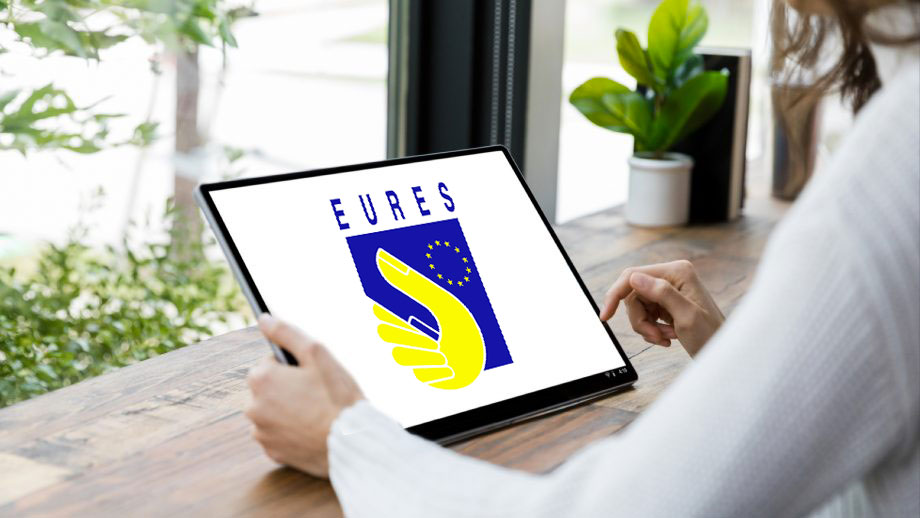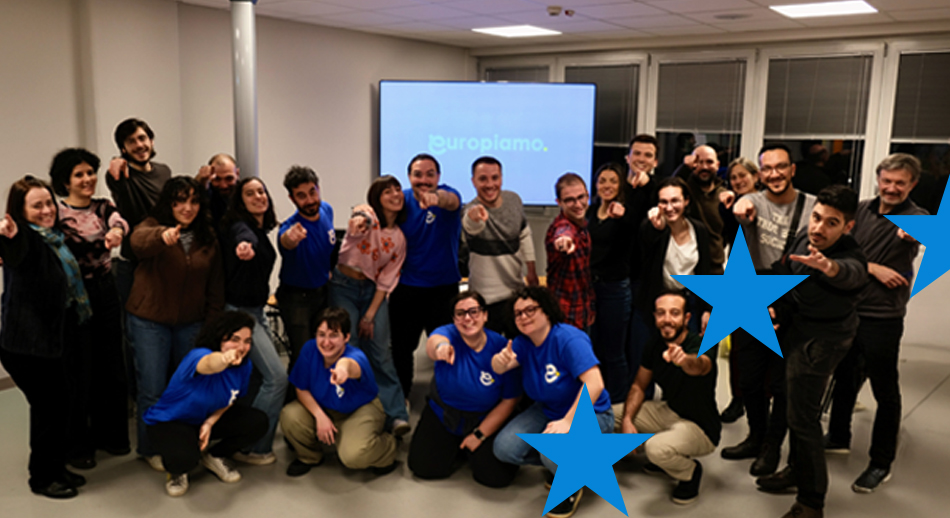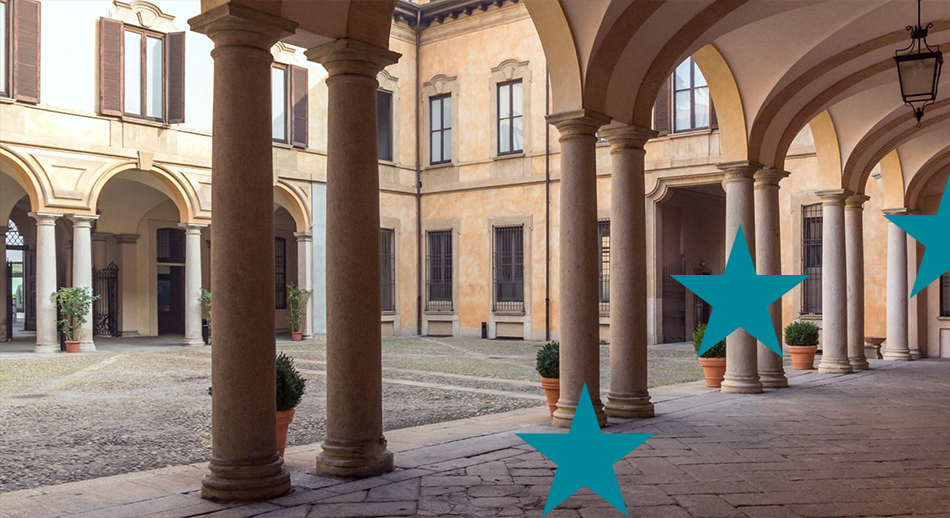We resume our review dedicated to actors promoting Europe at the local level with an update devoted to the EURES network: the European cooperation network of employment services, which has been operating since 1994 to facilitate the free movement of workers between EU countries.
The EURES network (an acronym for EURopean Employment Services) specializes in the areas of employment and mobility, which are particularly sensitive at a time of economic crisis and a significant reduction in the movement of people in Italy, Europe and around the world.
The presentation of the valuable support work that EURES carries out in our territories is intended to be, among other things, a sign of hope in view of the return to normalcy.
Let’s find out together with Francesca Carena, part of the EURES services staff of Agenzia Piemonte Lavoro, coordinated by EURES Adviser Patrizia Mercuri.
What is the European Union for you? In what ways do you feel an active part of it?
EURES is a cooperative network created to facilitate the free movement of workers in the countries of the European Union and the EFTA/EEA area. In addition to the offices that play a coordinating role at the European and national levels, EURES is made up of an extensive network of partners present throughout our local organisations: public and private employment services, trade unions, employers’ organizations and other important labor market actors, active on a single European portal and through about 1,000 dedicated consultants. Professionals specialized in practical, legal and administrative issues related to transnational and cross-border mobility, in daily contact with job seekers and employers throughout Europe.
Through its partners, its portal and its advisers, the EURES network makes the ideal of worker mobility in Europe a reality every day with a range of very practical services. This is the way we see and feel about the European Union. It is a common project to which we contribute by facilitating the matching of labor supply and demand and the free movement of workers between European countries.
It is also thanks to us that today some 17 million Europeans live and work in another EU country-about twice as many as ten years ago. We celebrated 25 years of history last year and can look back with some satisfaction. Certainly, the challenges are not over, and the current context characterized by Covid and the deteriorating employment situation throughout Europe is proof of this.
What is your target audience? What are your local organisations?
We represent the Piedmont node of a large network that extends throughout Europe. Piedmont’s is one of the most structured and active “nodes” in Italy, for productive, historical, cultural and geographical reasons. The region has always had close ties to other countries, has a strong cross-border dimension and has always been very active in labor policies. These historical realities and collaborations have been able to take on a coherent structure and a European dimension thanks to the EURES network.
In Piedmont, there are 5 EURES Advisers and more than 40 EURES Assistants at the regional Job Centers. The regional coordination of EURES is under thePiemonte Lavoro Agency.
You can follow us on our Facebook and LinkedIn pages (EURES Piedmont Employment Agency).
We are a public agency, so we provide support and collaborate with anyone who needs or is in tune with our mission. Our services are especially aimed at companies, young people and adults seeking employment, unemployed and employed people looking for new opportunities abroad. Foreign companies come to us (through our EURES contact persons) to find personnel with profiles that are difficult to find in their own countries; young people, the unemployed and workers to find job opportunities abroad that can enrich their skill set and to undertake new life experiences.
Young people are a particularly large part of our audience because they have an easier time moving to another country. We support “job changers” who wish to change jobs, sometimes change lives, or simply advance in their careers. We have specific projects for the unemployed, first-time job seekers and so-called “NEETs.” Many of the people we support are seeking a qualifying experience abroad and then returning. Importantly, this service supports people who would go abroad anyway, perhaps relying on companies that turn out to be fictitious. Supervision by an institutionalized service such as EURES prevents these young people from being targets of scams by nonexistent companies. Job offers and companies are pre-screened by our colleagues abroad before they reach us.
Among the most sought-after sectors abroad we can mention tourism-hotels (chefs to take Italian cuisine to the world, and beyond!), engineering and ICT (although already sought-after in our local organisations as well), and health care (where mobility is of little relevance today, but where “return staff” have brought new skills and expertise back to Italy). Teachers (not only of Italian) and other very specific figures (such as vine pruners, in demand in France) are valued. Mobility can really affect all areas!
Of course, mobility is not only outbound, although wage levels tend to favor a shift from Southern to Northern Europe. There are about 170,000 citizens of other European countries residing in Piedmont. Of course, only a small proportion of these are followed up by EURES, but we frequently support relocations for family or personal reasons, or searches for staff with specific language skills (teachers, trainers, and company salespeople). Not forgetting the cross-border dimension: the dense interchange with France and Switzerland is supported by the collaboration between EURES Piedmont and its cross-border counterparts.
In what ways do you provide support? What tools and answers are you able to provide?
EURES differs from other actors you interviewed [e.g., here: 1| 2 | 3] in that it deals with Europe from a very specific perspective, that of the labor market. We do not provide “all-encompassing” information about the European Union or europlanning. We are not an employment agency, nor are we an agency that promotes internships to learn a language. On the contrary, we mainly support those who have skills to offer and develop in other countries of Europe and are able to communicate in the target country.
Our network offers a wide range of information, assistance and placement services to job seekers and employers interested in the European job market. Specifically:
- We provide information regarding job opportunities and staff availability in different European countries: we have to date 2,578,327 proposals from 8,243 employers and 720,651 potential candidates, easily accessible through the portal and the support of our network at the local level. The European EURES portal is one of the most visited websites in Europe;
- We have a strong physical presence in local organisations to provide support on practical, legal and administrative issues related to the European labor market. We support employers and job seekers in the process of matching supply/demand, placement and post recruitment with dedicated and EURES-related mobility projects (YFEJ and Reactivate)
- We provide information and guidance regarding working and living conditions in different European countries to facilitate the relocation and integration of workers: in addition to individual assistance, a special section of the EURES portal is dedicated to the topic of “life and work.”
- We have a specific service dedicated to frontier workers in the cross-border regions of Europe; we have our own Reference Guide for those wishing to work abroad; we support and collaborate with other organizations active locally in the same field as us (Informalavoro, Informagiovani, Europe Direct, training agencies, high schools, vocational institutes, university job placement, local businesses); and we give mutual support to other EURES network actors at the national and European levels;
- We organize and participate in industry events and initiatives, such as university “career days,” open days and job fairs. We have just concluded IOLAVORO, Italy’s largest job fair, organized every year by our agency, this year in an entirely digital format. A fixture for matching job supply and demand and an opportunity for educational and career guidance, with a section dedicated to EURES. We organize themed workshops (“Living and Working Abroad,” “How to Compile a CV for Abroad”) and actively participated in the European Job Days, held this year in Italy on November 10 and 11 and organized by EURES Italy.
What do you recommend to an organization or person wishing to participate in a European project?
As explained, we do not deal directly with European design. We are partners in several projects, though, and we contribute to some of them – we will talk about them! And in some ways, our network itself constitutes the fruit of European planning.
From our point of view, we can definitely recommend participating in international mobility projects-they are a great way to launch oneself into the job market, retrain, or revitalize one’s working career. Our experience is that participation in mobility projects allows you to shed new light on your work, your business and your skills, not just your language skills.
This certainly applies to those involved in europlanning as well. At the end of the day, our action, that of your Guide and that of the Europrojectors have many things in common: first and foremost, that of providing tools to broaden one’s horizons in the work environment and beyond.
The testimony of workers in transit and returning to Italy, as well as that of the companies and organizations that welcome them, in Italy and the rest of Europe, teaches us that exposure to the realities and experiences of other European countries is always enriching and valuable, in the field of europlanning as in any other. Please feel free to jump in, learn, and exchange with anyone beyond our borders!
Can you tell us about a particularly significant experience of your support?
All our daily activity is significant: every new work experience activated abroad or in Italy for an Italian or European citizen represents a small or large turning point in a person’s life. This thought accompanies us every day and makes our work especially challenging.
However, we can mention some specific “project” experiences that are significant for readers of your Guide. We have done others in the past (Leonardo, Erasmus+ and Progress calls) but these certainly remain the most current and significant:
- A project dedicated to young people up to the age of 35 – “Your First EURES Job,” implemented under the EASI program. As also explained on your Guide, EASI has a dedicated axis for supporting and strengthening EURES activities. The project offers reimbursement for expenses necessary for an interview abroad (travel and overnight stay), for relocation in case of employment, for language training (if there is a concrete job or internship offer), and for recognition of degrees abroad. It also offers a grant to small businesses to train a newly hired young person;
- A project dedicated to citizens over the age of 35 – “Reactivate,” also implemented under EASI and similar to the previous one, aimed at supporting workers and companies in pursuing a recruitment process in another European country. Like the previous one, this project is implemented by EURES at the national level, with the participation of EURES Piemonte;
- A regional call for training agencies (funded by the ESF) aimed at supporting transnational mobility, through internships abroad of varying duration from 1 to 3 months, for any type of profile. EURES supports training agencies in finding jobs abroad and in pre-training outbound youth through contact with counterpart EURES centers in other European countries. Very often EURES also provides support upon return, for young people who want to continue the experience abroad.
Who knows if we will meet some of your readers in one of these projects soon?
We want to leave you with a very human and concrete testimony: that of Ottavio and Federico, waiters in Germany thanks to EURES – and in particular thanks to the project “Your First EURES Job.”
It is a very representative example of how our activity and a European project can mark a turning point in the lives of so many people.
We would also like it to be a sign of hope for so many young people who, especially at this time, are looking forward to “starting over”!




